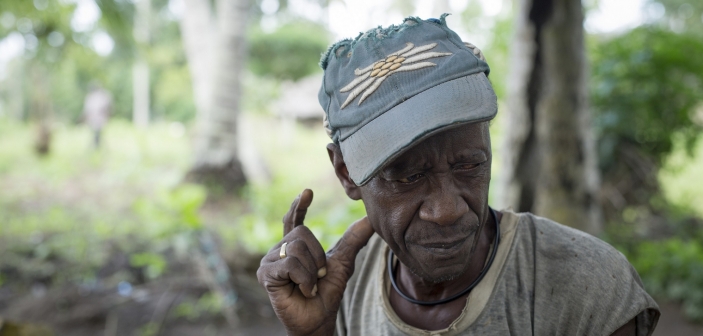
(c) Roopa Gogineni/HelpAge International
Katana has faced accusations of witchcraft in Kenya
By Ben Small
UN member states can no longer delay or prevent the implementation of a new convention on the rights of older people, following the release of a UN Independent Expert’s report on older people at the Human Rights Council last week.
Launched in Geneva on 15 September, Rosa Kornfeld-Matte’s report found unequivocally that the non-binding Madrid International Action Plan on Ageing (MIPAA) is insufficient in ensuring older people are protected from the unique human rights challenges they face.
She also concludes that, despite some good or promising practices, the implementation of existing law does not adequately ensure older people’s rights are upheld either.
These findings are hugely significant as the existence of MIPAA has been used as justification by some governments to stall progress on a new UN convention.
HelpAge, supported by 77 NGOs around the world, joined the Independent Expert’s call to member states to act urgently to ensure the human rights of older people are protected and that governments work towards the development of a convention.
“It has now been four years since the Open-ended Working Group on Ageing was asked to present a proposal on the main elements of a new international legal instrument to the UN General Assembly,” said Bridget Sleap, Senior Rights Policy Adviser at HelpAge International.
“Any further delay is unacceptable. Especially while millions of older people continue to be subjected to ageism and discrimination, and are denied their human rights.”
Which states are for a UN convention?
Many states showed their support for a new instrument at the Human Rights Council. This included the Group of Friends of the Human Rights of Older Persons, which is a global collective of 11 countries including Austria, Brazil, Namibia, Portugal, Singapore and Tunisia.
In a statement, the group said: “The international community should work towards achieving sufficient international standards in this domain, which should be reached in open, transparent and inclusive discussions that take into account views of all stakeholders, [especially] states and older persons themselves.”
The Dominican Republic, speaking on behalf of 33 Latin American and Caribbean states, agreed with the Independent Expert that the Open-ended Working Group on Ageing needed to step up its work and examine proposals for a new legal instrument. A number of African countries, including and Burkina Faso, Kenya and South Africa, also declared their support for a convention.
“A new convention would provide comprehensive protection of older people’s rights in law, a system through which to hold governments to account and a powerful advocacy tool for older people to claim their rights,” added Bridget.
“It would help bring about a shift away from the stigmatising and dehumanising ageist attitudes that currently dominate the way older people are seen and treated, moving instead towards recognition of older people as active rights holders.”
The next Open-ended Working Group on Ageing is due to be held 12-15 December 2016.
